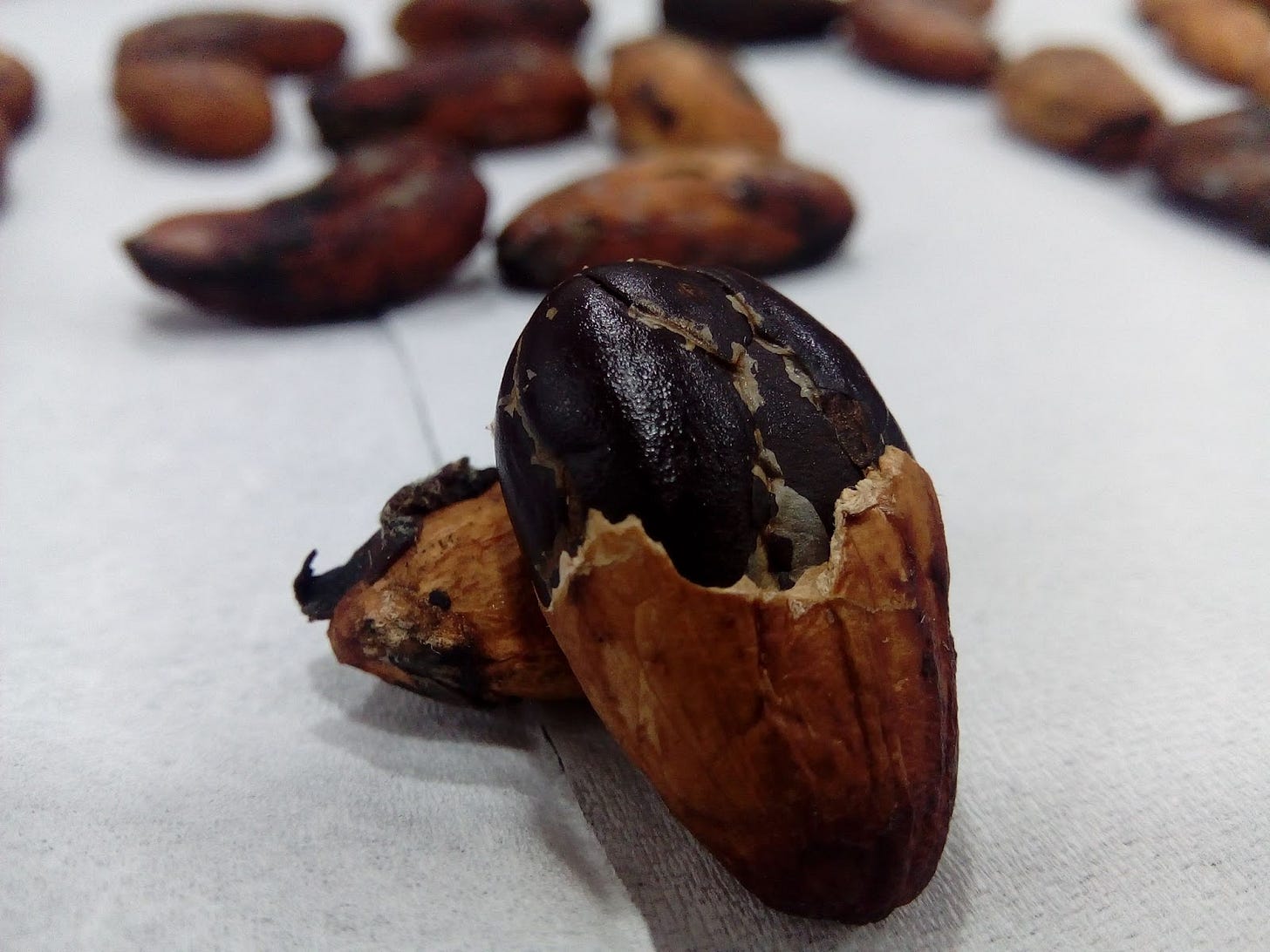This week, we interviewed Kwame Kwarteng, the writer behind Cocoa Diaries Newsletter, a publication that looks critically at the global cocoa-chocolate sector.
This interview has been lightly edited for length and clarity.
What’s your Substack about in one sentence?
A diary of essays that explains, exposes, and analyzes hidden issues from within the cocoa-chocolate industry.
You describe yourself as a cocoa farmer’s son. How far back does your family’s history with cocoa reach?
Both my maternal and paternal families’ history with cocoa goes as far back as the 1950s. We inherited the farm from successive generations and intend to pass it on, if the sector proves we can make cocoa farming a viable business which young people can venture into without begging for help.
What was it like growing up so close to cocoa?
When I was younger, I didn’t know much about cocoa farming in terms of how it was administered. I loved the crop, and the status that came with being in a family that owned a cocoa farm. I only became critical of the sector as an educated adult.
For a lot of cocoa farmers, like my family, their role is intentionally limited to cocoa production. We do not have a hand in price-setting for producing cocoa in Ghana, just as Ghana does not have a hand in price-setting for the world market.
Your Substack publication is rich with analysis about cocoa farmers’ incomes and the state of the industry in Ghana. What inspired you to look at cocoa so broadly?
My master’s in international development focused on globalization trade and industry. It introduced me to theories, politics, and interests that underpin global trade, and how these have changed over time.
As a cocoa farmer’s son—a project manager over cocoa processing and chocolate manufacturing—I started looking at it from a 360-degree perspective. I began to identify how injustice and inequality are linked to policy, power, politics, and colonial history. I got to know business models and practices within the global cocoa-chocolate sector, including certification organizations, like Fairtrade.
Being a system-wide analyst makes me think of cocoa farmers as future value-addition players. I don’t campaign for or suggest shortsighted policy recommendations that will come back and bite them in the long run. I want to hold powerful players to account for their practices and policies affecting smallholder cocoa farmers negatively.
“Being a system-wide analyst makes me think of cocoa farmers as future value-addition players. I don’t campaign for or suggest shortsighted policy recommendations that will come back and bite them in the long run. I want to hold powerful players to account.”
Read more: Is Fairtrade “Fair” to Ghanaian Fairtrade Cocoa Farmers?
What’s one thing you hope consumers will keep in mind when purchasing chocolates?
Cocoa-producing countries in Africa do not operate in a welfare state. So for children like myself, selling on the streets or supporting my parents on the cocoa farm was my route out of child poverty (as unfortunate as it was).
When you are poor, you don’t have the luxury to demand rights that don’t even exist in your country. So be cautious in your support of any campaign that paints all child workers with a broad brush, as that can be an injustice to children who use that as a route out of child poverty.
Who’s another Substack writer you’d recommend?
Glenn Greenwald: I appreciate how investigative and exploratory his writing is. He writes and explains issues and phenomena in simple language without beating about the bush. He tackles unpopular issues that other writers find dangerous to report on. This is the direction I would like to take, and I would like to learn a lot from him.
Subscribe to Kwame’s publication, Cocoa Diaries Newsletter, and find him on Twitter and LinkedIn.











Share this post